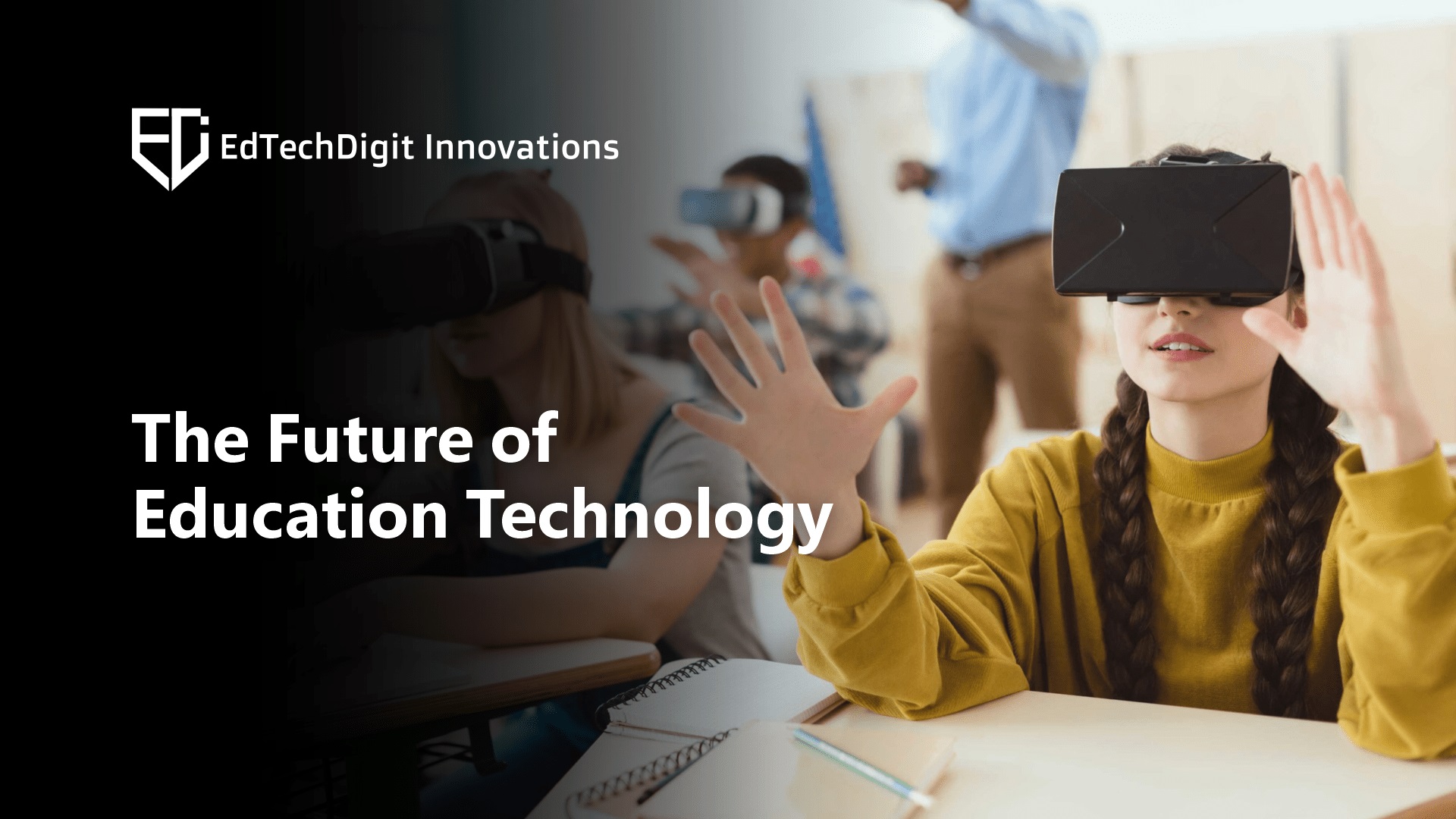Ever since the advent of the internet, sectors like finance, marketing, retail, etc. have changed drastically. One of the major impacts of the Internet is on the education industry. If we analyze the past few years, we will find huge differences in learning and teaching methods, development of advanced education technology, and enhanced online learning experience. This is evident from the fact that Edtech organizations are rapidly integrating advanced technologies like AI, AR, VR, etc. to make their educational products distinguished. According to Statista, the investment in augmented reality and virtual reality is expected to reach $12.6 billion by 2025.
So, in just a few years, the education industry has evolved rapidly and in the coming years, the future of education will see even more transformative changes. As of now, students are able to learn from the comfort of their homes, at their own pace, adjust the difficulty level, and understand complex concepts through visually attractive graphics and animations.
Did you ever imagine you could visualize the whole digestion process from ingestion to excretion and understand the various steps involved in it? Well, today’s kids can.
Now, that students and tutors have access to advanced education technologies, things are changing at an unprecedented rate, and heavy investments are being made in the field of education, learning in the classroom is not the only option to gain the latest skills and knowledge.
In this article, we will look at some of the popular education trends that are going to set the future of education and understand the opinions provided by some of the top educational influencers around the world.
Top Trends in Education Technology
Here are some of the key trends that are shaping the future of ed-tech industry
-
Increased digital footprints
Today, students are highly advanced and are digital natives surrounded by a variety of technology. Present-day learners are highly comfortable with using different types of digital tools and online learning platforms available to learn according to their preferences. Thus, there is an increased adoption of online learning platforms and educational apps that offer a wide range of flexibility and convenience to students.
-
Gamification of learning
When implemented properly, games can make a deep impact on the learning experience making it more engaging and enjoyable. Currently, we can find several EdTech platforms and applications incorporating educational games that use points, badges, leaderboards, etc. This is a great tool to motivate students and make them learn persistently offering an interactive experience. Whether it is maths, science, arts, or history, gamification can be used for all subjects.
-
Rise of Cohort-Based Learning
This refers to encouraging group-based learning where students from diverse backgrounds from across the globe can learn together over a period of time. It consists of a mix of self-paced learning activities as well as live instructor-led sessions. Overall, it strengthens a sense of community and collaboration among students that can help develop soft skills like communication too.
-
Growing role of AI and Automation
As mentioned earlier, the role of advanced technologies like AI and machine learning is becoming highly important. In the future, we will see AI-powered tutors who can offer personalized instructions and feedback to students. Not just learning, AI can also prove to be a great tool in automating various kinds of administrative tasks freeing up educators’ time to focus on more strategic work.
The Impact of Education Technology
The integration of technology in education has definitely transformed the learning in classroom as well as online learning. Here are some notable benefits of using ed-tech in education.
- Personalized learning
Education technology tools and adaptive learning platforms can easily understand student’s learning preferences, strengths, and weaknesses and customize the course accordingly. Thus, they can learn easier concepts faster and have more time to understand complex concepts properly.
- Better engagement
Educational games, simulations, use of AR and VR, and other interactive activities can efficiently capture student’s attention and make learning more fun and engaging
- Accessible Education
Technology is also making education accessible and flexible as students from every corner of the world, even from the remotest place can learn at their own pace and schedule.
- Accurate assessment
The advanced educational tools can help educators with necessary data regarding students’ progress and help them identify the student’s weak points for better support.
- Better communication and collaboration
Education technology platforms serve globally. This facilitates collaboration and communication between students and educators and allows them to collaborate on their projects and share ideas.
Conclusion
Education is among the most important pillars of society and technology is helping make the education system stronger, more flexible, and accessible for all. The future of education heavily relies on the advancement in technology. As we enter the future, technologies like AI, AR, VR, educational tools, and innovations in the EdTech domain will have a major role to play in transforming the ways in which students learn and engage. So, let’s embrace the technologies and adopt them with open hands to make education better for everyone.

